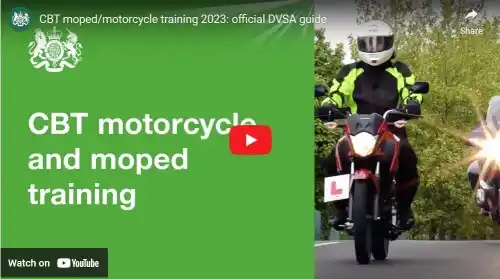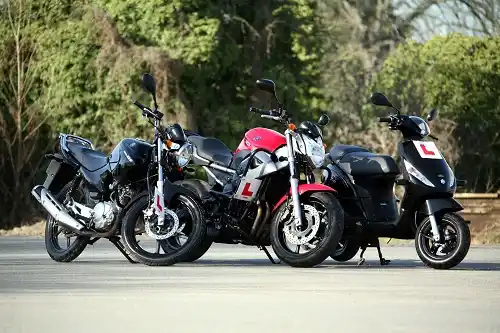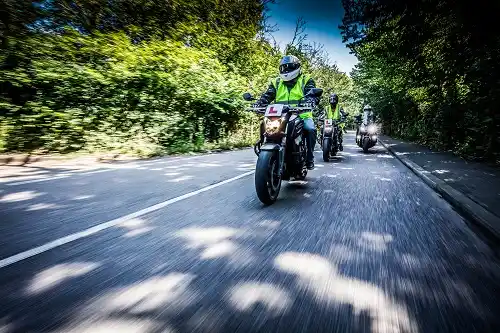book CBT training with All Bikes Motorcycle Training Ltd in Colchester
Weston Homes Community Stadium, United Way, Mile End, Colchester, CO4 5UP
steve@allbikesmotorcycletraining.co.uk
Website: http://www.allbikesmotorcycletraining.co.uk/
Facebook: http://www.facebook.com/allbikesmotorcycletraining
A CBT test consists of 5 elements labelled A to E. You will do these 5 elements in order throughout the day. The DVSA have produced an excellent short video showing you the elements of a CBT. Here is the video and below it is the description of each of the elements. Element A comprises of talk about clothing, safety helmet and equipment. This is also when your licence and eyesight will be checked and the aims of the course outlined. Make sure to bring your glasses or contact lenses if you wear them as you will need to read a registration plate at a distance of 20 metres. You will also learn: Element B introduces you to the machine and its controls and includes: Element C is the main part of the course and takes place on an approved training site (CBT pad). This is when you will learn to: Element D is a return to the class room prior to going out on the road. You will get a full briefing explaining: Element E is where you put all the above into practise by riding on the road. You will go out on the road with an instructor two at a time with a radio link. You must do at least two hours of road tuition, which must include doing a U-turn and emergency stop. At the outset the instructor will give plenty of guidance and help, but towards the end of the time on the road the instructor will be looking to see if you can get safely from one place to another without hurting yourself or anybody else.
A CBT test can normally be completed in a day, but may take longer if you need more time to master the control of the motorcycle or moped. Knowing how to ride a bicycle will really help, so if you have not ridden one for a while it's a good thing to do before you take your CBT.
If you do not complete your CBT to the instructors satisfaction then you will be asked to come back on another day for additional training. If this happens do not be alarmed or upset, some people take longer to master control of a two wheeled vehicle than others, but we all get there in the end. The most important thing to remember is its for your safety. Your instructor will be thinking of your safety if they ask you to come back for additional training.
Contrary to popular belief, a CBT is more of an evaluation than a test; your instructor will, throughout the day, observe your abilities and, if you complete the day to the required competency, you shall be awarded a pass certificate (professionally known as a DL196). A CBT certificate is valid for two years and once you have completed your full motorcycle examination, you will no longer have to renew your CBT. However, if you do not carry on your training in Colchester, you will be required to re-sit your CBT test after two years.If I book CBT training in Colchester what would I be doing?



How long does a CBT Test Take?
Is CBT a test or an evaluation?